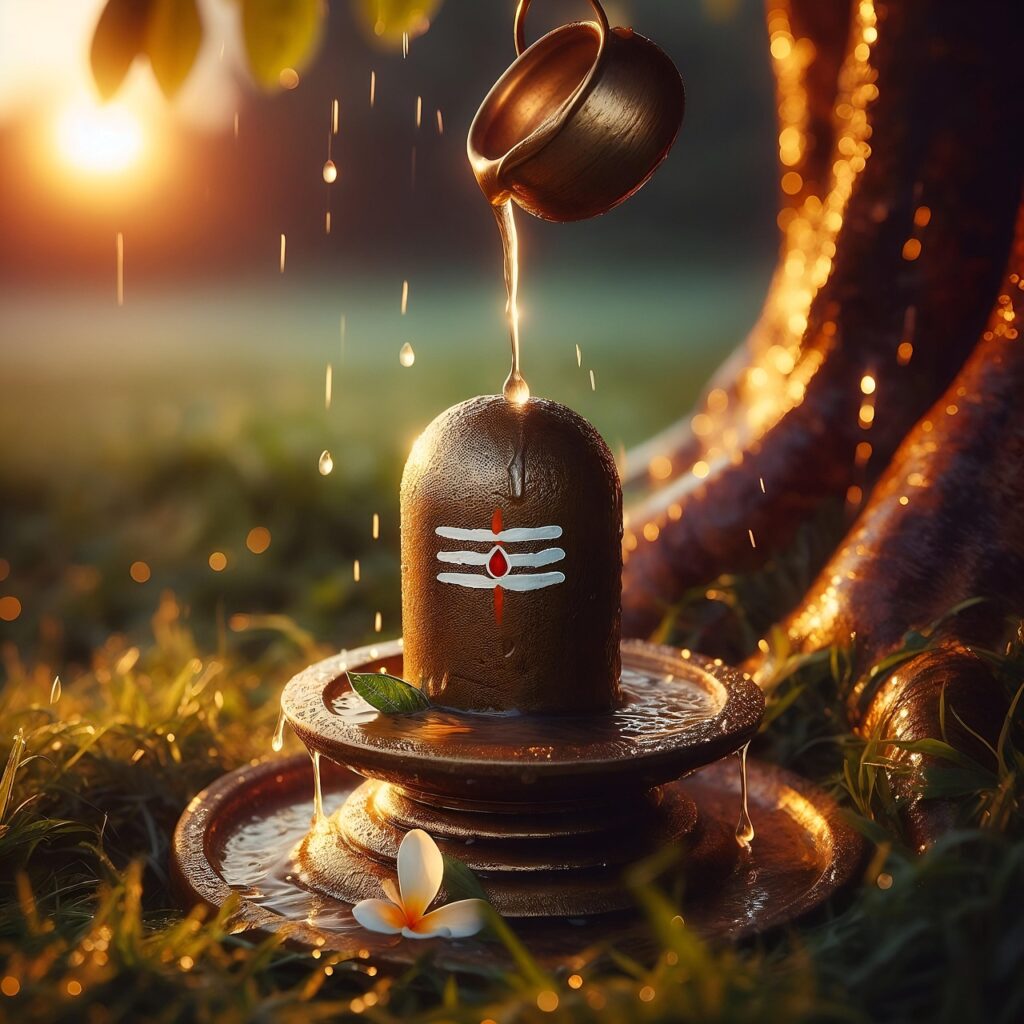Maha Shivratri
Maha Shivratri is a festival honoring Lord Shiva. It falls between February and March and commemorates the wedding of Lord Shiva and Devi Parvati. Unlike other Hindu festivals, devotees celebrate Maha Shivratri at night. The festival emphasizes self-study, fasting, meditation, and social harmony. Devotees offer fruits, leaves, sweets, and milk to Lord Shiva and observe his praises by reciting Shiva Chalisa. Some observe all-day fasting and perform meditative yoga. As per the Hindu Calendar, the festival is observed on the fourteenth day of the first half of the lunar month of Phalguna.

Legend
There are various legends associated with Maha Shivaratri as per several Puranas of Hindu Mythology. Some of them are:
- According to one of the legends, this is the night when Lord Shiva performs the dance of creation, preservation, and destruction. Hymn chanting, reading scriptures and the chorus of devotees join the dance and remember Lord Shiva.
- One of the legends states that Lord Shiva got married to Devi Parvati on this night.

- A different legend states that offerings given to Lord Shiva’s icons, such as linga, help one to overcome past sins and reach Mount Kailash for liberation.
- As per some of the beliefs, Lord Shiva gulped the Halala obtained from the Samudra Manthan and held it in his neck which turned blue giving him the epithet Neelkantha.

Worship
Various forms of Maha Shivratri celebrations take place throughout India and its neighboring countries.
India
Odisha
In Odisha, people also know Maha Shivratri as Jagara. They observe fast for the whole day and take food after Mahadipa.
West Bengal
Unmarried girls and boys seeking suitable matches visit Tarakeswar on the day of Maha Shivratri in West Bengal.
Gujarat
A meal takes place in Bhavnath in Junagadh in Gujarat, where people take a dip in Mrigi kund which is considered holy on Maha Shivratri.
Central India
In central India, Mahakaleshwar temple at Ujjain observes a large congregation of devotees who offer prayers on this day.
Himachal Pradesh
On Maha Shivratri, people believe all gods and goddesses congregate in Mandi, a town in Himachal Pradesh.
Andhra Pradesh/ Telangana
In Andhra Pradesh and Telangana, special pujas are held at Pancharamas (a group of five ancient Hindu temples dedicated to Lord Shiva). After Shivratri, Brahmotsavaalu is celebrated at Srisailam. The Mahashivaratri utsavalu celebration takes place at Rudreshwara Swamy’s 1000-pillar temple in Warangal. Special Poojas and Shivratri Yatras take place at various places in the state.
Karnataka
Devotees in Karnataka stay awake all night and visit temples to take part in the rituals on the day of Maha Shivratri.

Tamil Nadu
Devotees celebrate Maha Shivratri with great pomp and show at the Annamalaiyar temple in Tiruvannamalai, Tamil Nadu. Girivalam, a 14 km walk barefoot walk around Lord Shiva’s temple on the hilltop takes place. A huge lamp of oil or camphor is lit on the hill. The devotees undertake a marathon to the 12 shrines of Lord Shiva in Kanyakumari.
Kashmir
Herath in Kashmiri which is derived from Sanskrit word Hararatri (the night of Hara) is another name for Maha Shivratri in Kashmir. Kashmiri Hindus celebrate Herath on trayodashi, the thirteenth day of the dark half of the month of Phalguna, not Chaturdashi, the fourteenth, as elsewhere in the country. It is associated with the appearance of Bhairava (Shiva) as a jvala-linga or a linga of flame. Tantric texts describing Bhairavotsava say that, on this occasion, Tantric worship appeases Bhairava and Bhairavi (Shiva’s cosmic energy).
Nepal
Nepal celebrates this day as a national holiday. The region celebrates the festival with great pomp and show. Devotees and sadhus from Nepal and neighboring countries visit Pashupatinath temple, in Kathmandu. Devotees visit Shiva Shakti Peetham, and people perform holy rituals nationwide. People celebrate Maha Shivratri as Nepali Army Day. A huge public ceremony takes place at the Army Pavilion in Tundikhel.
Pakistan
Shree Ratneshwar Temple in Karachi sees a crowd of 25000 people. Hindus in the region do fasting. Devotees from Chanesar Goth carry the water from the Holy Ganga and visit the temple. Aarti is performed in the morning after which devotees walk barefoot carrying pooja thalis to the sea after which they have their breakfast.

Fasting
Fasting and meditation are recommended for Lord Shiva devotees. Devotees do not eat anything unless Lord Shiva is worshiped. On the day of Maha Shivratri, the fasting continues till late at night and devotees breakfast between sunrise and before the end of Chaturdashi tithi.
